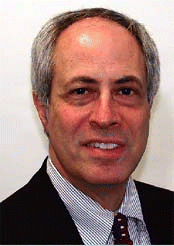In an editorial regarding this study in the same issue of Archives of Pediatric and Adolescent Medicine, Steven Berman, MD, Professor of Pediatrics at the University of Colorado Health Sciences Center, concurred with these findings (Arch Pediatr Adolesc Med 2005;159:1183–1185). Dr. Berman stated in his editorial that it is reasonable to conclude that the long-term effects of ventilating tubes are additive to age-related sensorineural hearing loss and noise-induced hearing loss, and that they can have an adverse effect later in life. For this reason, Dr. Berman said in a telephone interview that he believes 20-year and 30-year follow-up studies would be helpful in determining just how serious the risk of these potential sequelae may be.
Explore This Issue
November 2006Dr. Berman said that there are those in the ENT community who claim that the results of the Archives of Pediatric and Adolescent Medicine study by Stenstrom et al. may have been affected by the type of ventilating tubes that were used in the study, arguing that use of the newer, smaller tubes would not produce the same outcomes. His response to that argument is, “There is now evidence that there is a problem, and the responsibility is on the ENT community to document that the newer tubes are not associated with that problem. Rather than saying we don’t have the problem with the newer tubes, the onus is now on the ENT community to repeat the study with the new tubes. In the absence of those studies, people have to assume that there will be this effect.”
Dr. Grundfast opines that there may be too much emphasis on determining a number of ear infections that is “too many,” or a period of time that is “too long” for fluid to remain in the middle ear. He feels that the American Academy of Pediatrics and American Academy of Family Physicians guidelines advocate an approach to treatment that is moving away from the “cookbook approach” to practicing medicine.
He stated, “After so many years of controversy and searches for easy answers and formulaic approaches that would meet the need of societies and third-party payors, I firmly believe that children with otitis media are best served by having informed parents, having candid discussions with experienced otolaryngologists—who, with audiologists, have the ability to carefully examine the eardrums of children, and discuss with the parents any and all medical conditions or development problems that children may have—and analyzing the data obtained from otologic testing in order to make individual decisions about the best next step for each and every individual child.”

Leave a Reply